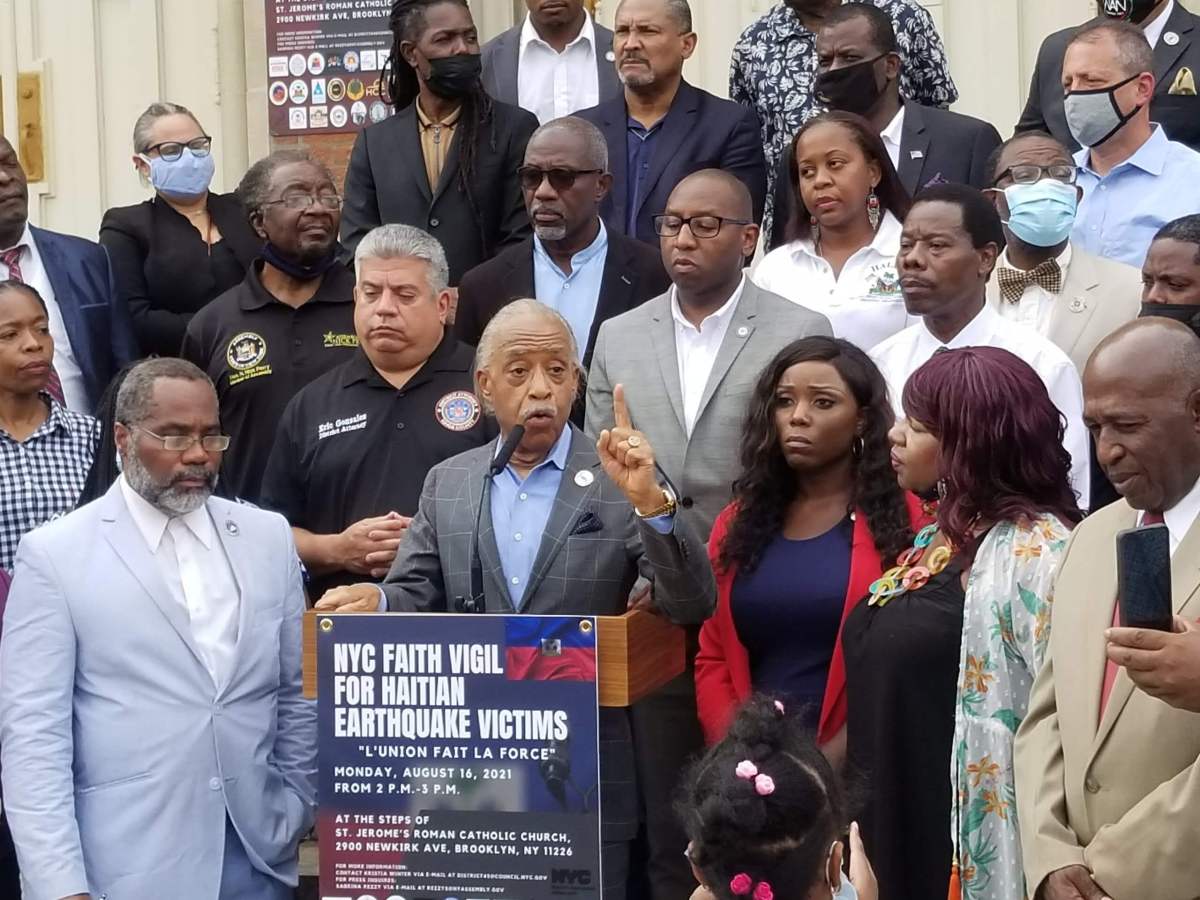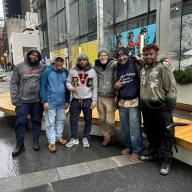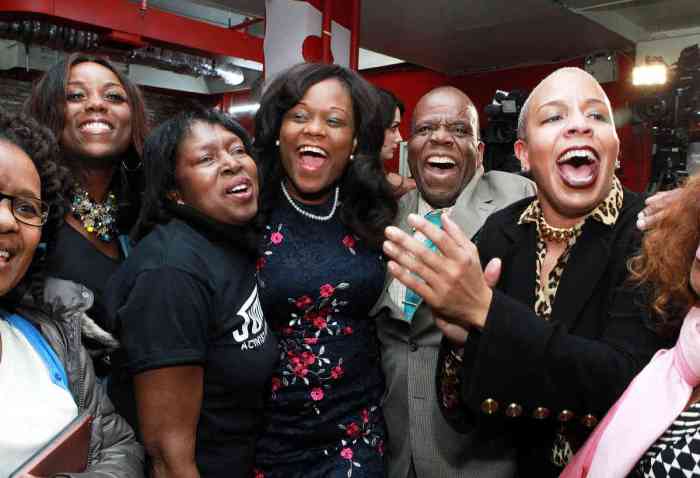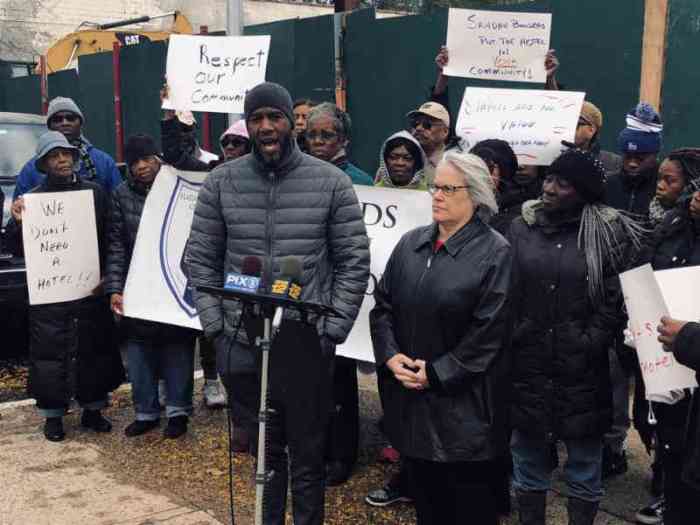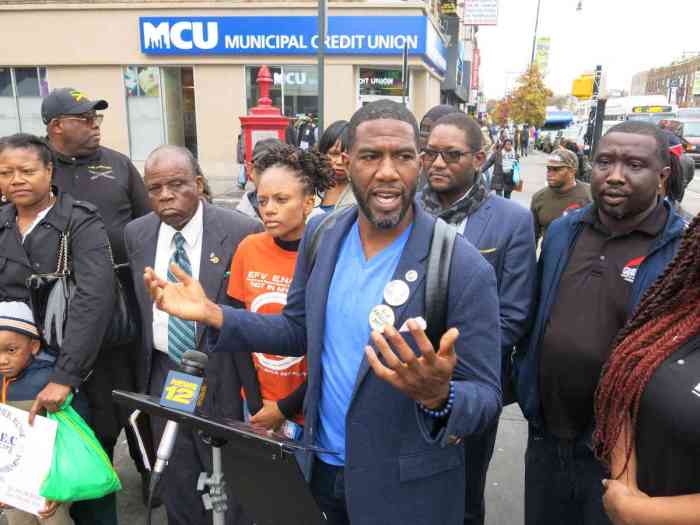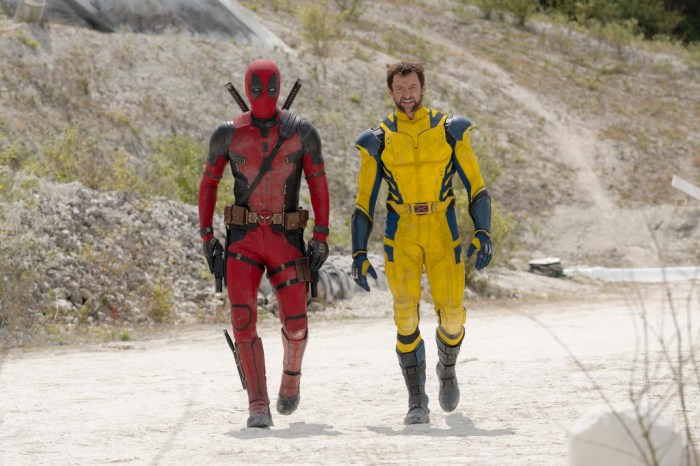Mayor Bill de Blasio joined numerous politicians and advocates in calling for assistance to Haiti in the wake of a devastating, magnitude 7.2 earthquake that has so far claimed over 1,200 lives.
Hizzoner joined Rev. Al Sharpton, Public Advocate Jumaane Williams, and pols from Brooklyn and elsewhere at St. Jerome’s Catholic Church on Newkirk Ave in Flatbush Monday, arguing that the city and country needed to do right by the Haitian people in their time of need.
“There is no New York City without the Haitian community,” de Blasio said. “It doesn’t exist.”
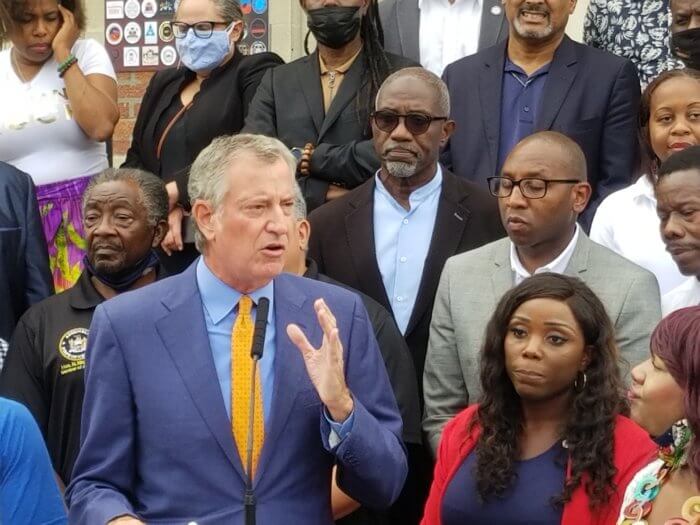
The Haitian diaspora community in New York, and particularly Brooklyn, is the largest of any American city, and many are feeling anguish over compounding tragedies that have faced the Caribbean nation in recent weeks. The Haitian president, Jovenel Moise, was assassinated in July, and a country already reeling from an earthquake is now set to be hit by a tropical storm barreling towards the island.
Haiti, which was established in the 18th century after a successful slave rebellion, has a long history of misfortune, including a 2010 earthquake that killed over 200,000 people and numerous other natural disasters, as well as man-made tragedies like gang violence, crumbling infrastructure, and political instability often propagated by the US.
“It is, to me, our responsibility, that in this, the first Black republic in the western hemisphere, that we all stand with them at this time,” Sharpton said. Sharpton said that his coalition, the National Action Network, would donate $10,000 to any charity as directed by Assemblymembers Rodneyse Bichotte and Councilmember Farah Louis, both Haitian-Americans representing the area and who helped organize the event.
Williams argued that Haiti’s misfortunes, and the lack of urgency in assisting the nation, is rooted in its identity as a free Black republic that stood up to white colonial rule, even 200 years later.
“There is no reason an earthquake should damage the country the same way it did over a decade ago,” Williams said.
“Haiti has done so much for this borough, for this city, for this country, we should be ashamed that they are where they are right now,” he continued. “We owe them more than just in times of catastrophe.”
The mayor announced Monday morning that the city was sending “mobile mental health support” to the Little Caribbean section of Brooklyn, home to tens of thousands of Haitians, for grief counseling; counseling can be found during business hours at the Haitian-American Council Training Center on Church Ave and the Evangelical Crusade Christian Chruch on East 31st St. The city has also set up a fundraiser through the Mayor’s Fund to mobilize donations, of money and items, to be sent to Haiti. All NYPD precincts are currently serving as donation hubs to send relief to the country.
Those programs were the result of phone calls Louis made to the mayor over the weekend, she said. Louis also said she is attempting to get delegations of city agency workers on flights to Haiti to assist. “There are people that want to be deployed to Haiti that work in city agencies, particularly the NYPD officers that call me every day…we were on 23 Zooms this weekend, they want to go to Haiti, but no one will pick up their phone to help us.”
But the city is unable currently to send a sizable delegation to Haiti, as it needs approval from the State Department to send a delegation on the city’s behalf. The Haitian-American Law Enforcement Fraternal Organization (HALEFO), a group of over 200 NYPD officers of Haitian descent often mobilized to help assist amid crisis in Haiti, is awaiting that approval to send at least 30 members who have volunteered to travel, and are hoping that assistance from Rep Yvette Clarke will expedite the approval, said group treasurer Mario Desruisseaux, a retired detective, in an interview.
As of now, the city has only one HALEFO member on the ground in Haiti, Desruisseaux said; another member happened to be in Les Cayes, which was heavily damaged by the earthquake, already, and HALEFO is sending funds raised during a previous hurricane to him to coordinate relief efforts such as food and water drives. In previous disasters, even the 2010 earthquake, HALEFO members had to buy their own tickets and pay for their own accommodations.
“Seven or eight people can go on their own,” Desruisseaux said. “If the city helped us, on behalf of the Police Department, to go, we would be able to send 40 or 50 people,” as they did after Hurricane Georges in 1998.
“We always volunteer,” he said, “but we don’t get the chance [to send a delegation] because by the time the process is worked out between the city and the State Department, the tragedy is gone. So we are hoping that this time, this process can be worked out — and we have Congresswoman Clarke, who says she’s on board to speed up the process — we can be mobilized within the next week or two.”
Speakers noted the importance of supporting community-based organizations intent on sending resources to the island. But those groups are constantly fighting for money in the face of numerous scams that pop up every time disaster strikes.
Murlande Bernard, director of the Haitian Nurses Network, and whose family members in the city of Jeremie have sustained injuries from the quake, told Brooklyn Paper that they have a delegation of 10 doctors and nurses ready to go to Haiti to assist tomorrow, but that the group doesn’t have the funds to send them, nor a host of necessary medical supplies. They also believe that they must send the delegation rather than just the supplies so they can monitor how the resources are used.
“We need to be able to monitor, visibly, where the funds are being allocated, how the funds are being allocated, how materials are being put to use,” Bernard said. “So this is the main reason why we in the organization feel it is a must that we go down there ourselves with the materials provided to us.”


